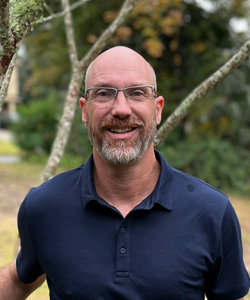Ten Questions for Jonathan Fink

“Don’t worry about aesthetic categories or limitations. Have fun.” —Jonathan Fink, author of Don’t Do It—We Love You, My Heart?
Jump to navigation Skip to content

“Don’t worry about aesthetic categories or limitations. Have fun.” —Jonathan Fink, author of Don’t Do It—We Love You, My Heart?
Hala Alyan reads her poem “Light Ghazal,” which appears in her fifth poetry collection, The Moon That Turns You Back (Ecco, 2024), in this short film directed by Jake McAfee and produced by the Adrian Brinkerhoff Poetry Foundation, in collaboration with the Academy of American Poets, for their Read By poetry film series.
Three prizes of $1,000 each and online publication in Arts & Letters are given annually for a group of poems, a short story, and an essay.
In this 2024 Guest Writers Series event hosted by the University of Utah’s Creative Writing department, Monica Youn reads poems about magpies from her fourth collection, From From (Graywolf Press, 2023), and Béatrice Szymkowiak discusses how natural history inspired her debut collection, B/RDS (University of Utah Press, 2023).
Ariel Francisco’s poem “On the Shore of Lake Atitlán, Apparently I Ruined Breakfast,” published in the Academy of American Poets’ Poet-a-Day series, recounts a puckish remark which derails the upbeat mood of a meal with the speaker’s mother and aunt. Commenting about the poem, Francisco acknowledges his teenage immaturity returning to him as an adult on this trip to Guatemala, his mother’s homeland. “This poem tries to capture what I often do in real life: upend a beautiful moment with something flippant,” he says. This week write a poem that attempts to capture a tendency you have, perhaps one that you’ve been self-critical about in your life. Francisco’s poem strikes a lighthearted tone throughout, which you might decide to mirror, or you could magnify your behavior’s ultimate consequences for a dramatically darker note that turns unexpectedly bright.
In this 2023 Bristol Ideas virtual event, Solmaz Sharif speaks with host Zoë Steadman-Milne about the nature of customs and interrogating those imposed within nation-states and literature, and reads from her poetry collection Customs, her first collection to be published in the U.K. by Bloomsbury.
The 2026 Black Sea Workshop, sponsored by the Elizabeth Kostova Foundation, will be held from June 26 to July 2 at the Sozopol Art Gallery in Sozopol, Bulgaria. The workshop features time and space to write; workshops; lectures on local history, architecture, and folklore; student and faculty readings; and an excursion to Varvara, a picturesque village located on the Black Sea coast by the Strandzha mountains for poets, fiction writers, and creative nonfiction writers.
Black Sea Workshop, 149 Evlogi I Hristo Georgievi Boulevard, Apartment 10, Sofia 1504, Bulgaria. Violeta Radkova, Managing Director.

“All you can do is pay attention to the process, the practice, and see what it does to you, what it does to the people around you, what it does to your dear readers.” —Latif Askia Ba, author of The Choreic Period
“Poetry is our essential language, and it is as essential to me as breathing.” In this Library of Congress event, Arthur Sze accepts the 2024 Rebekah Bobbitt Johnson National Prize for Poetry for Lifetime Achievement, reads several poems from his career, and talks about his formal exploration of poetics in a conversation with Rob Casper.
“One must have a mind of winter,” begins Wallace Stevens’s 1921 poem “The Snow Man,” which moves from describing iconically icy and desolate imagery of winter—“the pine-trees crusted with snow,” “the junipers shagged with ice”—to pointing out the human beholder’s subjectivity as the agent who projects this wintry outlook. This week, write a poem that takes inspiration from Stevens’s first line and explore what it means to you to have “a mind of winter.” Does it entail nothingness, quietude, withholding, generosity, cheer, beauty, love? How does your selection of seasonal associations determine your poem’s tonal direction? You might even experiment with approaching this prompt more than once, when your mood about the season feels distinctively different.